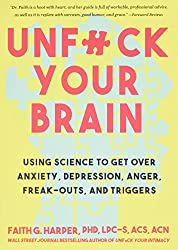Last Updated on July 2, 2023
Life has its fair share of ups and downs, and during challenging times, having a strong support system can make a world of difference. A support system consists of the people and resources that provide the emotional, physical, and mental support needed to cope with stress and improve overall mental well-being. In this article, we’ll explore practical steps you can take to build a robust support system that truly meets your needs.
1. Identify Your Needs
Let’s start by taking a moment to reflect on what you truly need. Each person’s support requirements are unique, so it’s crucial to identify what areas of support would benefit you the most. Do you yearn for someone to confide in, or do you require assistance with day-to-day tasks? Are you seeking resources to enhance your mental health? Gaining clarity on your needs will lay the foundation for building a support system that aligns perfectly with your requirements.
2. Reach Out to Friends and Family
During challenging times, friends and family often serve as pillars of support. They possess a deep understanding of who we are and can offer a listening ear, a helping hand, or simply provide a comforting presence. Reach out to your loved ones and share your experiences with them. If they are unable to provide the specific support you require, they may be able to connect you with someone who can.
3. Join Support Groups
Support groups provide a wonderful platform for individuals dealing with similar challenges. Whether you’re facing depression, anxiety, or navigating a specific health condition, there are support groups tailored to your needs. These groups offer a safe, non-judgmental space to share your experiences and connect with others who can relate to what you’re going through.
4. Consider Therapy
Therapy can be a transformative tool for addressing mental health issues and developing effective coping strategies. A therapist offers a secure and supportive environment to explore your thoughts, emotions, and behaviors, enabling you to manage stress and improve your overall mental well-being. If you’re unsure where to begin, consult your primary care provider for a referral to a trusted therapist.
5. Explore Online Resources
The Internet can be an invaluable resource for mental health support. Online communities, forums, and chat rooms bring together individuals who have shared experiences. Engaging with these platforms allows you to connect with others who understand your journey. Additionally, numerous websites and apps offer a wide range of mental health resources, including meditation apps, mood trackers, and online therapy options.
6: Find Local Resources
Don’t overlook the support available within your local community. Research community centers, mental health clinics, and non-profit organizations in your area. They often provide support groups, counseling services, and various resources aimed at improving mental health. The face-to-face interactions and connections you can build through these local resources can be invaluable.
7. Prioritize Self-Care
Self-care is a vital component of building a strong support system and maintaining good mental health. It involves nurturing yourself physically, mentally, and emotionally. Here are some self-care practices to consider:
- Ensure you get sufficient sleep each night (aim for 7-8 hours).
- Adopt a balanced diet that incorporates fruits, vegetables, lean proteins, and whole grains.
- Engage in regular exercise to reduce stress, boost mood, and enhance self-esteem (try for 30 minutes most days).
- Cultivate mindfulness by being present at the moment and observing your thoughts and feelings without judgment. This practice can alleviate stress, and anxiety, and contribute to improved overall mental well-being.
- Explore hobbies and activities that bring you joy and fulfillment, such as reading, painting, or playing music.
- Set healthy boundaries in your relationships and don’t hesitate to say no to commitments that don’t serve your well-being.
- If needed, seek professional help from a therapist or counselor who can offer expert guidance tailored to your specific mental health needs.
8. Embrace Openness to Help
Lastly, it’s crucial to be open to receiving help. Building a strong support system takes time and effort, but it’s a worthwhile investment in your well-being. Don’t hesitate to reach out to others and ask for assistance when you need it. Remember that seeking support is a sign of strength, not weakness, and there’s no shame in reaching out for help.
How Mental Health Affects Physical Health
Do you know what’s fascinating? The intricate dance between our mental and physical well-being. It’s like they’re two best friends who are always in sync, constantly communicating and influencing each other. When we’re overwhelmed by stress, anxiety, or those moments of feeling down, it’s not just our minds that bear the burden—it’s our bodies too. They’re like a team, saying, “Hey, we’re in this together.” The weight of those emotions can manifest in physical symptoms. Our shoulders hunch forward, our breath becomes shallow, and tension grips our muscles. It’s as if our bodies are speaking a language, expressing what our minds struggle to put into words.
But here’s the thing: the impact goes even deeper. Our mental health can have a profound effect on our physical well-being. When stress runs rampant, our blood pressure can rise, putting a strain on our hearts. The constant state of fight-or-flight mode can weaken our immune system, making us more vulnerable to illnesses. And let’s not forget about the domino effect on our sleep. When our minds are racing, sleep becomes elusive, leaving us tired and drained. It’s like a vicious cycle—poor sleep affects our mood and cognitive function, which further exacerbates our mental well-being.
Even more astonishing is the hidden influence of mental health conditions. Depression can leave us with an overwhelming heaviness that zaps our energy and motivation. Anxiety can tie our stomachs in knots and make us feel like we’re constantly on edge. These emotional struggles have a way of seeping into our physical realms, affecting our appetite, weight, and overall vitality.
So, it’s crucial that we tend to our mental health with the same care and attention we give our physical health. By nurturing our minds, we’re not only alleviating emotional burdens but also allowing our bodies to thrive. Engaging in stress-reducing activities like meditation or finding solace in creative outlets can be like a soothing balm for both our hearts and bodies. Prioritizing self-care and seeking support when needed are powerful ways to foster a harmonious connection between our mental and physical well-being.
Remember, my friend, that building a strong support system is essential for nurturing your mental health. Whether it’s leaning on loved ones, joining support groups, or seeking professional guidance, there’s a wealth of resources available to help you construct a support system that caters to your unique needs. Take care of yourself, embrace openness to help, and remember that you’re never alone on this journey.
Wishing you strength and resilience!
About Personal Development & Self-Care Topic
Personal Development & Self-Care is a category dedicated to helping individuals improve their lives by focusing on mental, emotional, and physical well-being, and self-improvement through various techniques, practices, and tools.
Discover the power of mindfulness and self-care. Join our Body and Mind Recharge hub for tips and tricks. Sign up for free today!


























